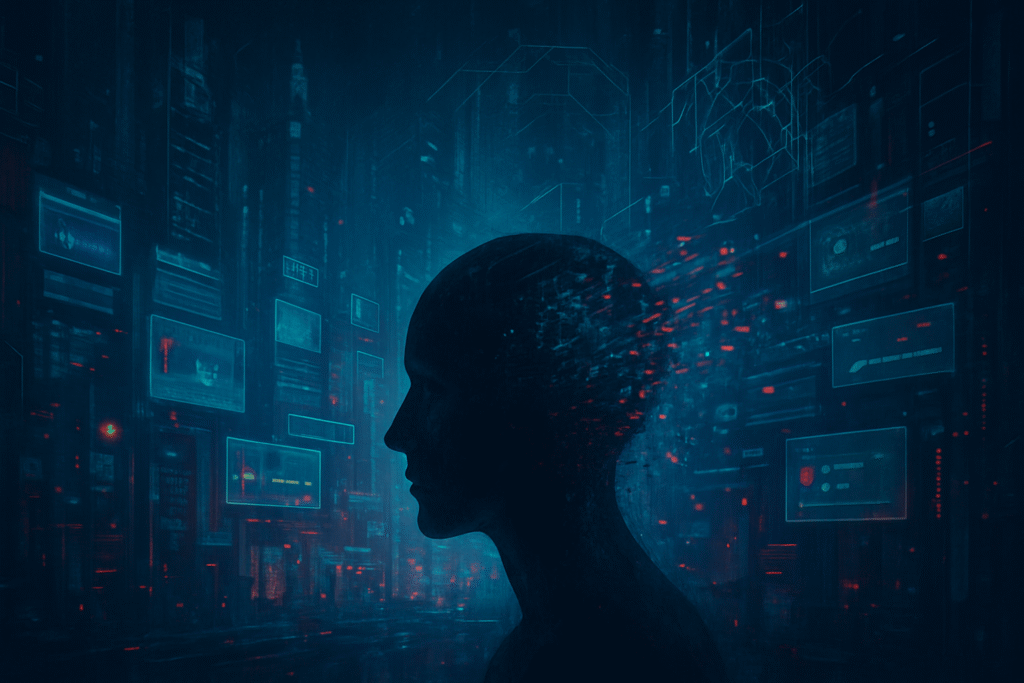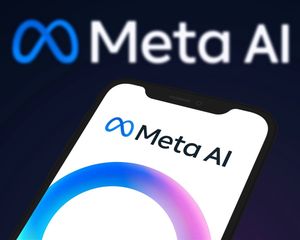Financial News
The Digital Deluge: Is AI and Social Media Fueling a Global ‘Brain Rot’ Epidemic?

The digital age, heralded for its unprecedented access to information and connectivity, is increasingly shadowed by a growing societal concern: "brain rot." Coined the Oxford Word of the Year in 2024, this colloquial term describes a perceived decline in cognitive function—manifesting as reduced attention spans, impaired critical thinking, and diminished memory—attributed to the pervasive influence of online content. As of November 2025, a mounting body of research and anecdotal evidence suggests that the very tools designed to enhance our lives, particularly advanced AI search tools, chatbots, and the ubiquitous social media platforms, might be inadvertently contributing to this widespread cognitive erosion.
This phenomenon is not merely a generational lament but a serious subject of scientific inquiry, exploring how our brains are adapting—or maladapting—to a constant barrage of fragmented information and instant gratification. From the subtle shifts in neural pathways induced by endless scrolling to the profound impact of outsourcing complex thought processes to AI, the implications for individual cognitive health and broader societal intelligence are becoming increasingly clear, prompting urgent calls for mindful engagement and responsible technological design.
The Cognitive Cost of Convenience: AI and Social Media's Grip on the Mind
The rapid integration of artificial intelligence into our daily lives, from sophisticated search algorithms to conversational chatbots, has introduced a new paradigm of information access and problem-solving. While offering unparalleled efficiency, this convenience comes with a significant cognitive trade-off. Researchers point to cognitive offloading as a primary mechanism, where individuals delegate tasks like memory retention and decision-making to external AI systems. An over-reliance on these tools, particularly for complex tasks, is fostering what some experts term "cognitive laziness," bypassing the deep, effortful thinking crucial for robust cognitive development.
A concerning 2025 study from the Massachusetts Institute of Technology (MIT) Media Lab revealed that participants utilizing AI chatbots, such as those powering ChatGPT (developed by OpenAI), for essay writing exhibited the lowest brain engagement and consistently underperformed at neural, linguistic, and behavioral levels compared to those using traditional search engines or no tools at all. Crucially, when the AI assistance was removed, these users remembered little of their own essays, suggesting that the AI had circumvented deep memory processes. This observation has led some researchers to coin the term "AI-Chatbot Induced Cognitive Atrophy" (AICICA), describing symptoms akin to dementia in young people who excessively rely on AI companions, weakening essential cognitive abilities like memory, focus, and independent thought. Furthermore, even AI models themselves are not immune; studies from 2025 indicate that Large Language Models (LLMs) can suffer "cognitive decline"—a weakening in reasoning and reliability—if repeatedly trained on low-quality, engagement-driven online text, mirroring the human "brain rot" phenomenon.
Parallel to AI's influence, social media platforms, especially those dominated by short-form video content like TikTok (owned by ByteDance), are widely perceived as major drivers of 'brain rot'. Their design, characterized by rapid-fire content delivery and constant notifications, overstimulates cognitive processes, leading to a diminished ability to focus on longer, more complex tasks. This constant attentional switching places significant strain on the brain's executive control systems, leading to mental fatigue and decreased memory retention. The addictive algorithms, engineered to maximize engagement through instant gratification, dysregulate the brain's dopamine reward system, conditioning users to seek constant stimulation and making it harder to engage with activities requiring sustained effort and delayed rewards. Research from 2023, for example, linked infinite scrolling to structural brain changes, diminishing grey matter in regions vital for memory, attention, and problem-solving.
Competitive Implications and Market Shifts in the Age of Attention Deficit
The escalating concerns surrounding 'brain rot' have profound implications for AI companies, tech giants, and startups alike. Companies like Alphabet (NASDAQ: GOOGL) (parent company of Google), with its dominant search engine and AI initiatives, and Meta Platforms (NASDAQ: META), a powerhouse in social media with platforms like Facebook and Instagram, find themselves at a critical juncture. While their AI tools and platforms drive immense user engagement and revenue, the growing public and scientific scrutiny over cognitive impacts could force a re-evaluation of design principles and business models. These tech giants, with vast resources, are uniquely positioned to invest in ethical AI development and implement features that promote mindful use, potentially gaining a competitive edge by prioritizing user well-being over sheer engagement metrics.
Startups focused on "mindful tech," digital well-being, and cognitive enhancement tools stand to benefit significantly. Companies developing AI that augments human cognition rather than replaces it, or platforms that encourage deep learning and critical engagement, could see a surge in demand. Conversely, platforms heavily reliant on short-form, attention-grabbing content, or AI tools that foster over-reliance, may face increased regulatory pressure and user backlash. The market could shift towards services that offer "cognitive resilience" or "digital detox" solutions, creating new niches for innovative companies. The competitive landscape may increasingly differentiate between technologies that empower the human mind and those that inadvertently diminish it, forcing a strategic pivot for many players in the AI and social media space.
A Broader Crisis: Eroding Cognition in the Digital Landscape
The 'brain rot' phenomenon extends far beyond individual cognitive health, touching upon the very fabric of the broader AI landscape and societal intelligence. It highlights a critical tension between technological advancement and human well-being. This issue fits into a larger trend of examining the ethical implications of AI and digital media, echoing previous concerns about information overload, filter bubbles, and the spread of misinformation. Unlike previous milestones that focused on AI's capabilities (e.g., AlphaGo's victory or the rise of generative AI), 'brain rot' underscores AI's unintended consequences on human cognitive architecture.
The societal impacts are far-reaching. A populace with diminished attention spans and critical thinking skills is more susceptible to manipulation, less capable of engaging in complex civic discourse, and potentially less innovative. Concerns include the erosion of educational standards, challenges in workplaces requiring sustained concentration, and a general decline in the depth of cultural engagement. The scientific evidence, though still developing, points to neurobiological changes, with studies from 2023-2025 indicating that heavy digital media use can alter brain structures responsible for attention, memory, and impulse control. This raises profound questions about the long-term trajectory of human cognitive evolution in an increasingly AI-driven world. The comparison to past AI breakthroughs, which often celebrated new frontiers, now comes with a sobering realization: the frontier also includes the human mind itself, which is being reshaped by these technologies in ways we are only beginning to understand.
Navigating the Cognitive Crossroads: Future Developments and Challenges
In the near term, experts predict a continued surge in research exploring the precise neurobiological mechanisms behind 'brain rot', with a focus on longitudinal studies to establish definitive causal links between specific digital habits and long-term cognitive decline. We can expect an increase in AI tools designed for "digital well-being," offering features like intelligent screen time management, content filtering that prioritizes depth over engagement, and AI-powered cognitive training programs. The development of "ethical AI design" principles will likely move from theoretical discussions to practical implementation, with calls for platforms to incorporate features that encourage mindful use and give users greater control over algorithms.
Longer-term developments may include a societal push for "digital literacy" and "AI literacy" to become core components of education worldwide, equipping individuals with the cognitive tools to critically evaluate online information and engage thoughtfully with AI. Challenges remain significant: balancing technological innovation with ethical responsibility, overcoming the addictive design patterns embedded in current platforms, and preventing "AI brain rot" by ensuring LLMs are trained on high-quality, diverse data. Experts predict a growing divergence between technologies that merely entertain and those that genuinely empower cognitive growth, with a potential market correction favoring the latter as awareness of 'brain rot' intensifies. The future hinges on whether humanity can harness AI's power to augment its intellect, rather than allowing it to atrophy.
A Call to Cognitive Resilience: Reclaiming Our Minds in the AI Era
The discourse around 'brain rot' serves as a critical alarm bell, highlighting the profound and often subtle ways in which our increasingly digital lives, powered by AI and social media, are reshaping human cognition. The evidence, from neuroplastic changes to altered dopamine reward systems, underscores a pressing need for a conscious re-evaluation of our relationship with technology. This is not merely an academic concern but a societal imperative, demanding a collective effort from individuals, educators, policymakers, and technology developers.
The significance of this development in AI history lies in its shift from celebrating technological prowess to confronting its potential human cost. It forces a crucial introspection: are we building tools that make us smarter, or simply more reliant? In the coming weeks and months, watch for heightened public debate, increased research funding into digital well-being, and potentially, a new wave of regulatory frameworks aimed at fostering more cognitively healthy digital environments. The ultimate challenge is to cultivate cognitive resilience in an era of unprecedented digital immersion, ensuring that the promise of AI enhances human potential without eroding the very foundations of our intellect.
This content is intended for informational purposes only and represents analysis of current AI developments.
TokenRing AI delivers enterprise-grade solutions for multi-agent AI workflow orchestration, AI-powered development tools, and seamless remote collaboration platforms.
For more information, visit https://www.tokenring.ai/.
More News
View More



Recent Quotes
View More
Quotes delayed at least 20 minutes.
By accessing this page, you agree to the Privacy Policy and Terms Of Service.



